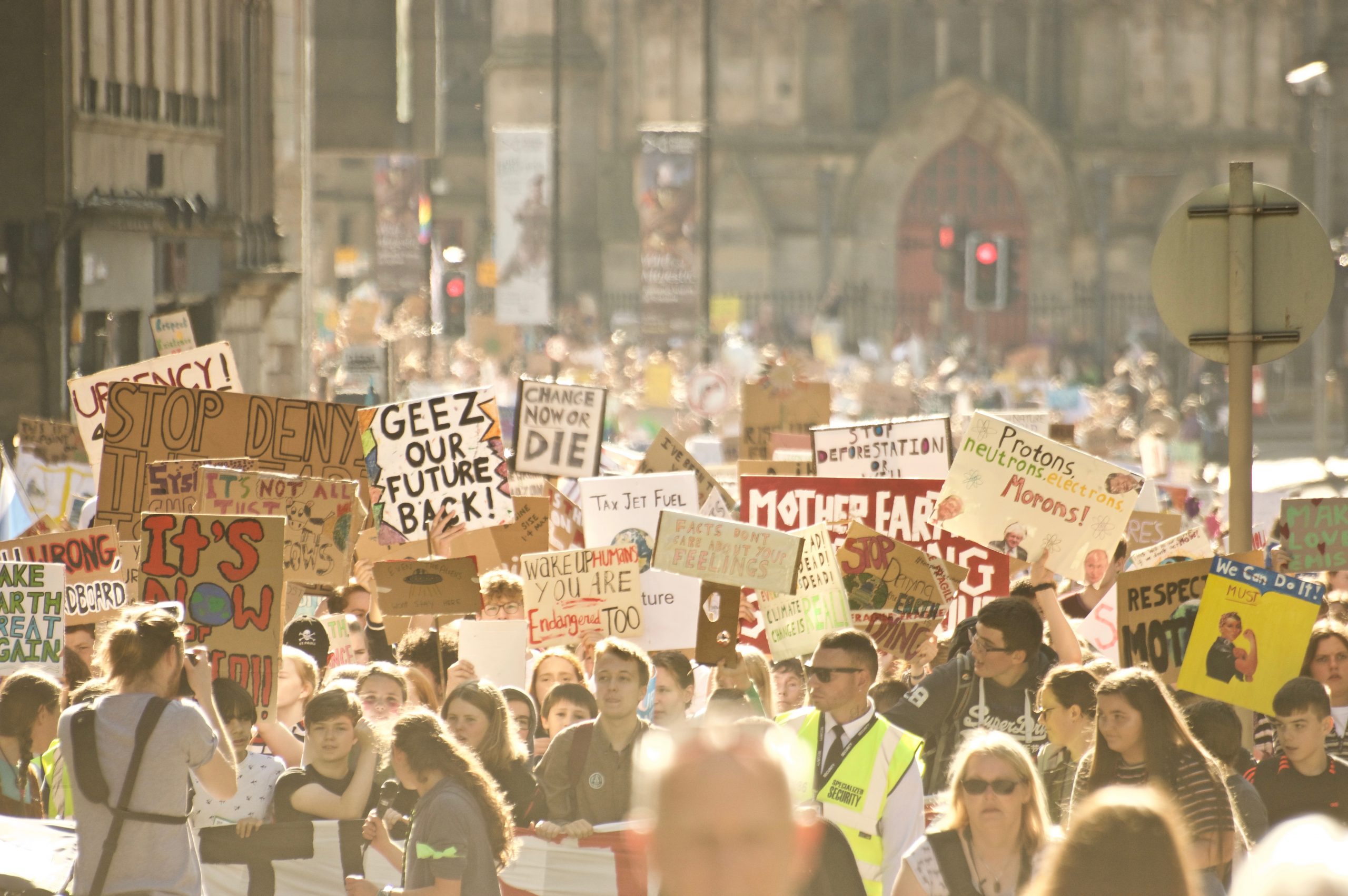
Parliamentary Committee calls for improvements to Transport Bill
Environmental campaigners have welcomed the publication of a Parliamentary Committee report into the Transport Bill. The report by the Rural Economy and Connectivity (REC) Committee makes recommendations to the government, including support for councils are low emission zones and local authority ownership of buses.
The REC Committee heard the views of many stakeholders on the Transport Bill, including Friends of the Earth Scotland. The report says “The Committee recognises that there is an urgent need to address the environmental issues around poor air quality given their impact on public health”.
Local authority ownership of buses is proposed in the current Transport Bill, in areas where there is “unmet transport need”. Many respondents to the Committee’s consultation pointed out that this only allows councils to run loss-making bus services, and if the restriction was withdrawn, councils could run a networked service with busier buses subsidising less commercial routes. The Committee encouraged the Government to give councils more freedom to run bus services.
Friends of the Earth Scotland’s Air Pollution Campaigner, Gavin Thomson said:
“It’s great to see this Parliamentary Committee recognising the importance of low emission zones to tackle air pollution. However, it’s disappointing that they didn’t address the desperately slow timetable for these zones. The current version of the Bill could mean zones wouldn’t be fully implemented until 2026, meaning people having to wait another 7 years for clean air.
“2,500 people die early each year in Scotland due to air pollution. It causes heart and lung problems and is particularly dangerous for our most vulnerable groups, such as the very young, the elderly and those who are already unwell. Air pollution primarily comes from transport, and we need ambitious transport policies to reduce the death toll.
“Buses are key to improving air quality. If we can make the bus network more accessible, affordable, and accountable, we can take cars off the road. People will use public transport if it is convenient for them. The Committee are encouraging the Scottish Government to consider giving councils more powers to regulate services and run their own buses. This would be a great step forward. The current model for buses is not working, having lost 99 million passenger journeys in the last 10 years.
“The Government needs take on board these key recommendations and improve on their lacklustre Bill. Councils need more power to improve bus networks, and hold private operators to account. Low Emission Zones need to be well communicated to people, setting out how they will benefit everyone and how they will work.”
“The Committee has asked for the opportunity to review the amendment for Workplace Parking Levy powers which will be added to the Bill as a result of the budget agreement between the SNP and Greens. These powers have a track record of delivering significant changes to travel habits, bringing much needed investment to transport infrastructure, and creating healthier places to live and work. It is an optional power being offered to councils. It won’t be right for every area, but to combat congestion and air pollution in our city centres, it is an important tool for councils to have available to them.”
ENDS
Notes for Editors
1. The Rural Economy and Connectivity Committee Stage 1 report on the Transport Bill is available here: https://sp-bpr-en-prod-cdnep.azureedge.net/published/REC/2019/3/7/Stage-1-Report-on-the-Transport–Scotland–Bill/RECS052019R4.pdf
2. Research cited in the report shows 2500 people die early due to air pollution in Scotland every year.
https://foe.scot/press-release/new-research-means-2500-deaths-a-year-in-scotland-are-from-air-pollution/
3. FoE’s submission to the Rural Economy and Connectivity Committee: http://www.parliament.scot/S5_Rural/Friends_of_the_Earth_Scotland_TB.pdf
4. Low Emission Zones are planned for Edinburgh, Dundee, and Aberdeen. There is already a LEZ in place in Glasgow, using traffic legislation rather than powers the Transport Bill is creating. https://www.lowemissionzones.scot/about
5. 99 million bus journeys lost in the last 10 years. Scottish Transport Statistics. Page 20. https://www.transport.gov.scot/media/44025/scottish-transport-statistics-no-37-2018-edition.pdf
6. Friends of the Earth Scotland is
* Scotland’s leading environmental campaigning organisation
* An independent Scottish charity with a network of thousands of supporters and active local groups across Scotland
* Part of the largest grassroots environmental network in the world, uniting over 2 million supporters, 75 national member groups, and some 5,000 local activist groups. www.foe.scot
